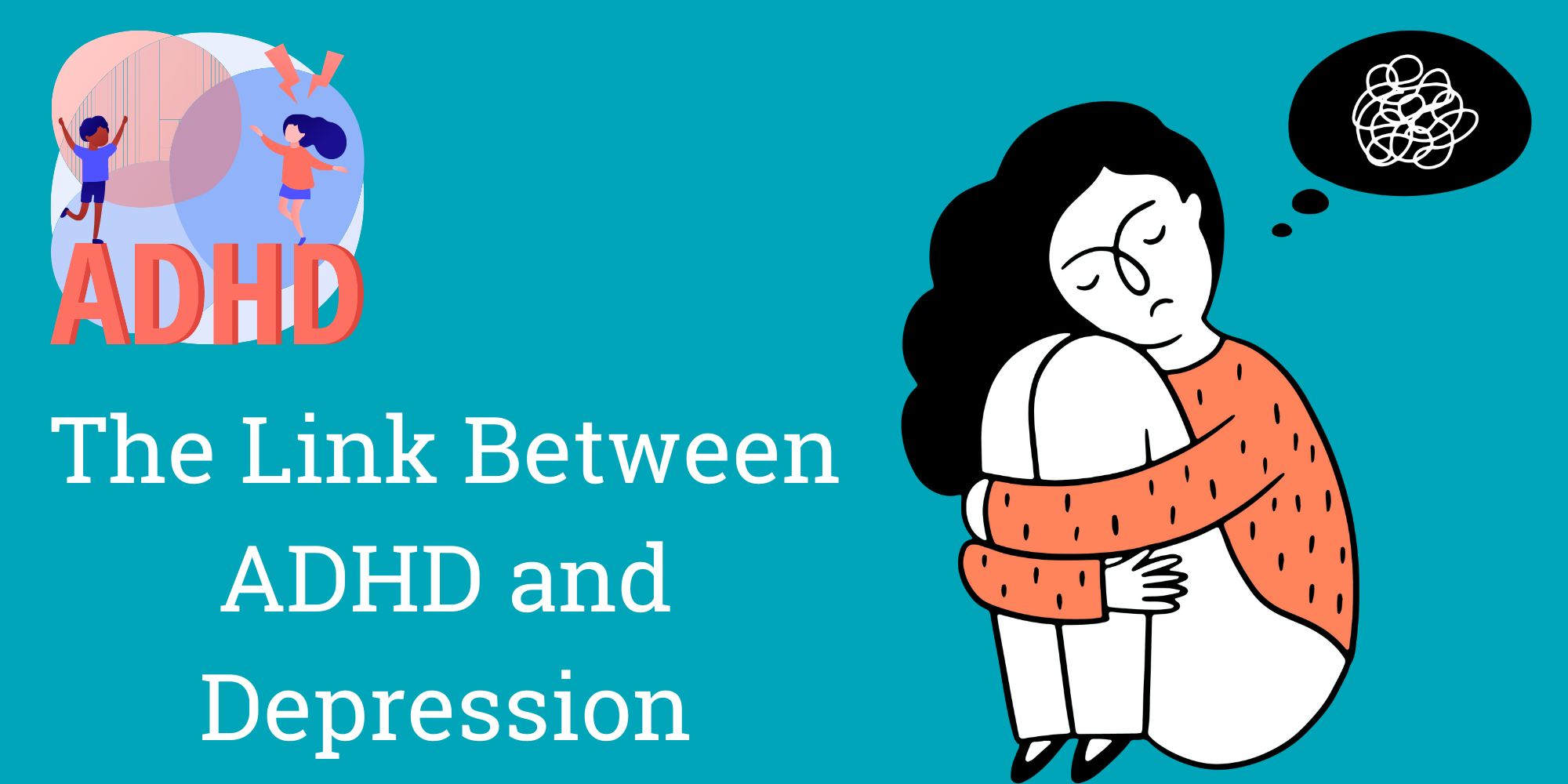
ADHD and Depression Connection
There are many types of depression: major depression, postpartum depression, bipolar depression, and seasonal affective disorder. Not only are there many types of depression, but depression can also occur at the same time as other mental health conditions. It’s very common for those with anxiety or ADHD to also have depression. This is called comorbidities.
Here at NextStep2MentalHealth, our multidisciplinary team of experts excel at diagnosing and treating comorbidities, including ADHD and depression.
In this article, we take a closer look at the ADHD and depression connection.
The ADHD and Depression Connection
Here are a few quick facts from the video:
- 30% of those with ADHD experience depressive episodes
- Dopamine is responsible for reward systems, mood, and those with ADHD may not have access to as much dopamine
- This leads to the potential feeling like “you’re running on half a tank”
- Those with ADHD may struggle more with emotional dysregulation, which means it can take longer to soothe after difficult emotions
Dopamine is a type of neurotransmitter, and it’s often called the “feel good” hormone. Your body makes it, and your nervous system uses it to send messages between nerve cells. Low levels of dopamine may contribute to feelings of depression.
Do You Have Depression?
If you have ADHD, you might also suspect you have depression if you can’t shake intense sad feelings, notice changes to your eating and sleeping routine, feel worthless or guilt, and lose passion for your favorite hobbies.
You can learn more about depression in these resources:
- How Untreated Depression Can Impact Your Health
- Teen Depression: What to Look For and How to Help
- 32 Ways to Help Someone with Depression (When They Don’t Want to Talk About It)
- 8 Risk Factors for Depression
- Do You Have Depression or Seasonal Affective Disorder?
- Overcoming the Negative Self-Talk Cycles of Depression
- 6 Uncommonly Thought Of Depression Symptoms That Shouldn’t Go Unnoticed
Treating ADHD and Depression

If you have both ADHD and depression, you need treatment that addresses the complexities of each condition. For example, you may benefit from strategies that promote emotional regulation. Other treatments for both ADHD and depression include:
- Medication (depression and ADHD both benefit from different types of medication)
- Lifestyle modifications, including regular exercise, good sleep hygiene, eating a balanced diet, and practicing stress management techniques
- Therapy
What to Do If You Think You Have Depression
With the right treatment, you can manage the symptoms of both of these conditions. Here at NextStep2MentalHealth, our team of experienced providers is skilled at diagnosing and treating many types of depression, including major depression, seasonal depression, and postpartum depression as well as adult and child ADHD.
If you’d like to make an appointment with our compassionate and knowledgeable providers, click here to make a telehealth or in-person appointment in our Louisville, Kentucky office. You can also call us at 502-339-2442.
Learn More
Learn about Seasonal Affective Disorder
Fall is just around the corner. While the thought of pumpkins and cozy sweaters might be exciting to some people, the thought of less sunshine and colder weather is less-than-thrilling for others.
For some people, saying goodbye to summer can trigger seasonal affective disorder (SAD), a type of depression that’s linked to changes in the seasons.
But how do you know if you just happen to like summer more than fall — or if you have SAD? In this blog, we take a closer look at what SAD is and how to know if you need to discuss SAD with your provider.
How Do You Know If You Have SAD?
Common symptoms of SAD include:
- Sleeping a lot but still feeling tired
- Changing in appetite, especially craving sweets and carbs
- Low energy
- No interest in your favorite activities
- Feeling sad
- Difficulty concentrating or focusing
- Feeling worthless
SAD can start at any age, but it most often starts to affect adults between the age of 18 and 30. If you think your symptoms might be related to SAD, you’ll need an accurate diagnosis before embarking on any treatment plan. Many mental health conditions share similar symptoms (such as trouble concentrating), which makes an evaluation that much more important.
To be diagnosed with SAD, a person must meet specific criteria:
- Have the symptoms of major depression
- The depressive episodes must occur during specific seasons (i.e., only during the winter months or the summer months) for at least 2 consecutive years
Sunlight goes down. Sadness goes up.
Treating Seasonal Affective Disorder
SAD can be treated with both lifestyle modifications and medication. Common treatments include:
- Spending as much time in the sunlight as possible (e.g., an early morning walk)
- Light therapy (which involves sitting near a light box that generates 10,000 lux
- Psychotherapy
- Medication, including antidepressants
- Vitamin D supplements (studies show that individuals with SAD are more likely to be deficient in vitamin D)

Help Is Here
With the right treatment, you can feel better. Here at Next Step 2 Mental Health, our team of experienced providers is skilled at diagnosing and treating many types of depression, including major depression, seasonal depression, and postpartum depression. If you’d like to make an appointment with our compassionate and knowledgeable providers, click here to make a telehealth or in-person appointment in our Louisville, Kentucky office. You can also call us at 502-339-2442.
Learn More
8 Risk Factors of Depression
Risk factors for diseases are the things that increase the likelihood that you’ll get the disease or condition. Risk factors don’t guarantee you’ll develop the condition, but they do raise your risk. For example, inactivity is a risk factor for heart disease. Leading a sedentary lifestyle doesn’t mean you’ll 100% develop heart disease, but it does increase your risk. Just like there are risk factors for diseases like heart disease, there are also risk factors for mental health conditions too. In this blog, our team of experts explores the risk factors associated with depression.
1. Family History of Depression
Having a family history of depression can increase your risk for developing the condition too. Remember, though, that there are many ways you can support your mental health, even if you don’t have any symptoms of depression. Eating well-balanced meals, staying active, getting enough sleep, managing underlying health conditions, and managing stress all go a long way in supporting your mental health.
It’s also important to know the symptoms and signs of depression so that if you can receive treatment as soon as possible.
2. Sedentary Lifestyle
According to the experts at Johns Hopkins, inactivity can also exacerbate or add to feelings of depression. Inactivity affects your mental and physical wellness in many ways. Not only does a lack of physical activity increase your risk of obesity and diabetes, it also affects your mood. This is true for both adults and children. A lack of physical activity during adolescence is linked to a higher rate of depression by the age of 18.
The good news is that this is a risk factor within your control. Research shows that exercise (especially if it’s outside) can improve your mood. You don’t need to be a marathoner to experience the benefits of exercise. Even little strides to add more physical activity into your day can help support your mental wellness.
You can add more physical activity into your day by:
- Getting up every hour to stretch your legs and walk around
- Walking an extra block when you walk your dog
- Going for a short walk after dinner or on your lunch break
- Taking the stairs instead of elevator, when applicable
- Dancing in your living room
- Playing tag or catch in the yard with your kids
- Going for a hike on the weekend
You can also try at-home workouts.
3. Underlying Medical Illnesses and Chronic Pain
In addition to your family history, your own personal medical history can also play a role in your depression diagnosis. Medical illnesses — including cancer, stroke, and Parkinson’s disease — can increase your risk of depression. Hormonal shifts, including menopause, thyroid disorders, and testosterone deficiency, can also increase the risk of depression. Hormonal shifts after childbirth can also increase your risk of developing a specific type of depression called postpartum depression.
Chronic pain (from arthritis, cancer, neuropathy, etc.) is also linked with increased risk of depression.
4. Age
Age is another risk factor for depression. Lack of activity, death of a loved one, isolation (in a nursing home), age-related insomnia, increasing health conditions can all increase the risk for depression in the elderly. Unfortunately, the elderly are often undertreated when it comes to depression. Depression can present in many ways, including fatigue, sleeping more, and loss of appetite. If you’re feeling blue and the feelings just don’t let up, don’t hesitate to reach out.
5. Insomnia
Not sleeping well isn’t a risk factor of depression just for the elderly. No matter what age you are, if you’re not sleeping well, it can impact your mental health.
“Depression and sleep problems are closely linked. People with insomnia, for example, may have a tenfold higher risk of developing depression than people who get a good night’s sleep. And among people with depression, 75 percent have trouble falling asleep or staying asleep.” (source)
If you’re not sleeping well, now is the time to improve your sleep hygiene. You can learn more about sleep hygiene here.
6. Stress
Sometimes stress is a good thing. The stress of a deadline at work can motivate you to get the project done. However, chronic, unmanaged stress can take a toll on your physical and mental wellness. If you’re not coping well with chronic stress, you’re more likely to become depressed and/or anxious.
Stress management techniques include:
- Exercising
- Yoga
- Meditation
- Deep breathing
- Time management
You can learn more about how stress impacts your brain here.
7. Big Life Changes
Change is hard for many people, and how well you handle stress can impact your mental health. Even positive changes can increase your risk for depression if you’re not prepared. Examples of big life changes include:
- Buying a new house
- Getting married
- Having a child
- Moving to a new state
- Experiencing the loss of a relationship
- Experiencing the loss of a loved one
- Getting a new pet
- Starting a new job
Remember, just because you experience a big life change doesn’t mean you’ll definitely develop depression. However, you can further reduce your risk of becoming depressed by preparing for big changes as much as possible. You can embrace change by:
- Focusing on what you can control
- Acknowledge your fears but take action anyway (it’s okay to feel nervous starting a new job or moving to a new state, but don’t let it stop you from pursuing your dreams!)
- Accept and engage with grief (rather than avoiding dealing with it)
8. Certain Medications
Certain medications can increase your risk for depression. This includes sedatives, sleeping pills, some seizure medication, and certain medications for heart problems and asthma. If you suspect that your feelings of depression are linked to your medication, don’t hesitate to reach out to your prescribing provider.
When You Can’t Avoid the Diagnosis
At Next Step 2 Mental Health, we know how profoundly any mental health condition can impact all aspects of your life, and if you’re struggling now, you don’t have to wait until it gets worse before reaching out for help. Our compassionate, non-judgmental team offers a variety of treatments, including medication and therapy.
To reclaim control over your life, call our Louisville, Kentucky office at 502-339-2442. You can also request an appointment online.
Learn More
Teen Depression: Signs to Look For & How to Help
Teenage depression isn’t just “a mood swing” or sadness. Depression is a serious mental health condition that can affect teenagers and adults alike. Teen depression can impact your teenager’s mental wellness, physical health, academic performance, and relationships with friends and family.
Here at Next Step 2 Mental Health, our compassionate providers are experienced in treating depression in teenagers, and if you suspect your child is struggling, we encourage you to call us.
In the meantime, you can learn more about depression in teenagers in the article below.
What Are the Signs of Depression in Teenagers?
As with adults, teen depression can affect teens in many ways. Some of the common symptoms of depression include:
- Feelings of sadness
- Low self-esteem and low self-worth
- Feelings of guilt
- Changes to appetite (eating more or less)
- Changes to sleep (sleeping more or less)
- Fatigue
- Loss of passion for favorite hobbies
- Anger
- Difficulty feeling happy
- Feeling anxious
- Headaches or stomach pains
You might notice your teen start to struggle in school or lose interest in extracurricular activities (including spending time with friends). He or she may also seem more irritable.
Remember, Your Teen Isn’t Alone

Approximately 13% of American teenagers experience depression annually. According to a 2018 study, depression has increased (by 47% for boys and 65% for girls) from 2013-2018. Unfortunately, the coronavirus pandemic has further affected the mental health of Americans — teenagers included. The stress of the pandemic, changes to normal school routines, and missing socializing with friends are potential triggers for teens, according to the CDC.
Even though depression is common, it’s important to seek treatment if you spot the signs of depression in your child.
Depression is a serious condition, and it’s one that we take seriously here at Next Step 2 Mental Health. According to the Centers for Disease Control and Prevention, suicide was the second leading cause of death for teens in America in 2017. The CDC cites depression as a major risk factor for suicide.
If your child is in crisis, call 9-1-1. You can also reach the National Suicide Prevention Lifeline at 1-800-273-TALK (8255) for English, 1-888-628-9454 for Spanish.
The National Suicide Prevention Lifeline is a national network of local crisis centers that provides free and confidential emotional support to people in suicidal crisis or emotional distress 24 hours a day, 7 days a week. We’re committed to improving crisis services and advancing suicide prevention by empowering individuals, advancing professional best practices, and building awareness.
How Is Teen Depression Treated?
Even though depression can impact teens (and entire families), it can be treated, and with the right treatment, your teen may start to feel better. So, how is depression treated? Because depression is a complex illness, there isn’t a one-size-fits-all treatment, especially if your teen has co-occurring conditions, such as anxiety or ADHD.
Depression treatment often involves therapy as well as medication. Depression can trigger hopelessness, but remember, it is treatable. Learning about depression, offering a listening ear, and supporting your teen with the right treatment can help. Here at Next Step 2 Mental Health, our multidisciplinary team offers everything your teen needs under one roof, from medication management to therapy.
To learn more about depression or to schedule an appointment, click here.
Learn More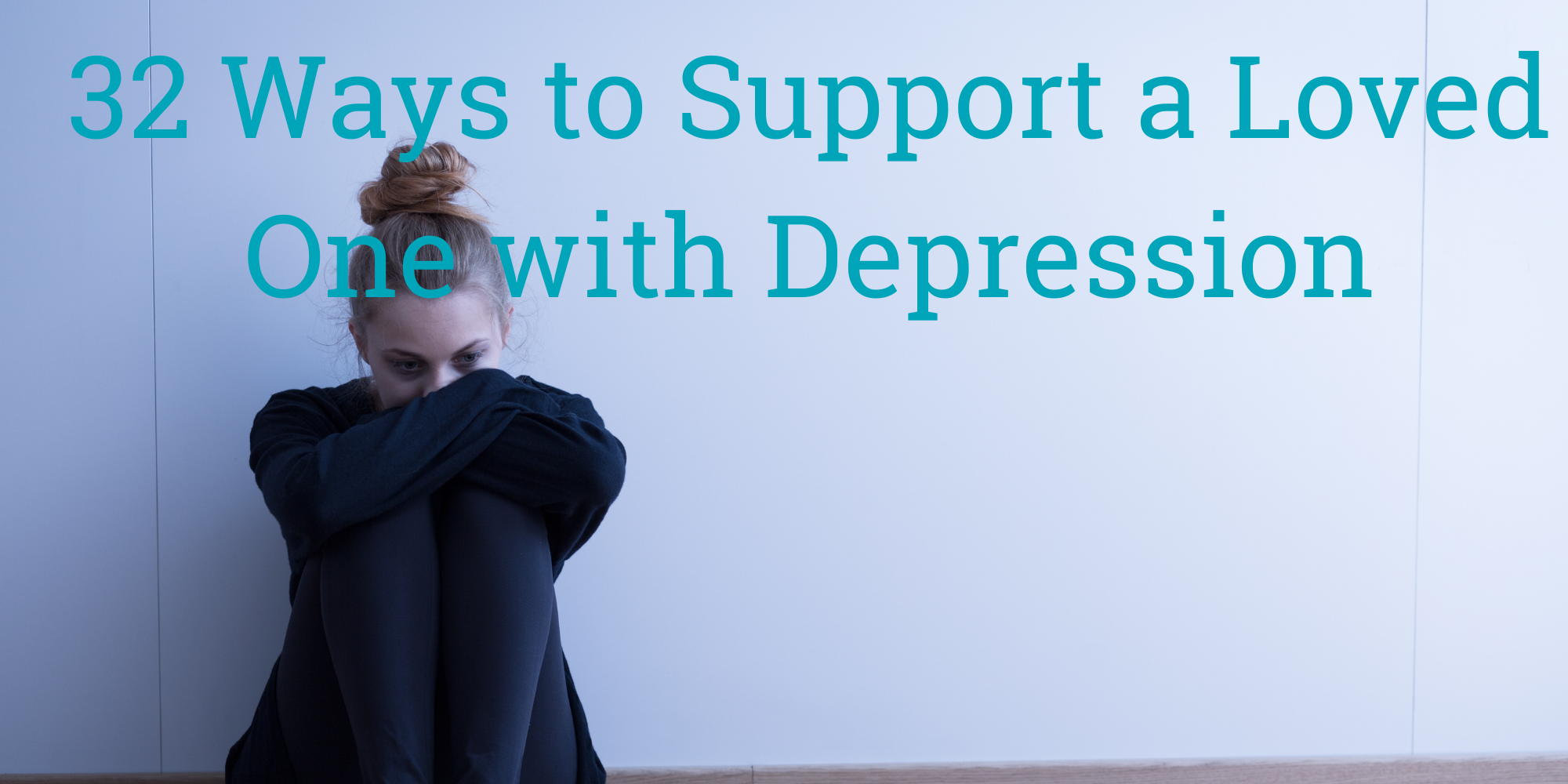
32 Ways to Help Someone with Depression (When They Don’t Want to Talk about It)
Depression can be debilitating, and if it’s your child or spouse or friend battling depression, you might wonder how you can help them. Even if your loved one doesn’t want to talk about it (which can be common), there are still ways you can be present and supportive.
Reminder: If you or a loved one are battling depression—or even suspect you might be— our compassionate team here at Next Step 2 Mental Health encourages you to reach out for help. Professional mental healthcare providers can help you learn strategies to make a positive difference in your life, despite the all-consuming nature of depression.
In the meantime, the video below highlights 32 ways you can support someone with depression.
If you or a loved one are in crisis, please contact the National Suicide Prevention Hotline at 1-800-273-TALK (8255), or call your local emergency services.
Additional Reading
You can learn more about depression, the signs of depression, and how to cope with it in these articles:
- 11 More Ways to Help Someone with Depression
- Learn more about Seasonal Affective Disorder
- How to Workout When You’re Depressed
- Surprising Signs of Depression
- Overcoming the Negative Self-Talk Cycles of Depression
We’re Here to Help You Take Your Next Steps
At Next Step, we know how profoundly depression can impact all aspects of your life. Our compassionate, non-judgmental team offers a variety of depression treatments, including medication and therapy.
If depression is keeping you from your potential, we can help. Call our Louisville, Kentucky office at 502-339-2442. You can also request an appointment online.
Learn More
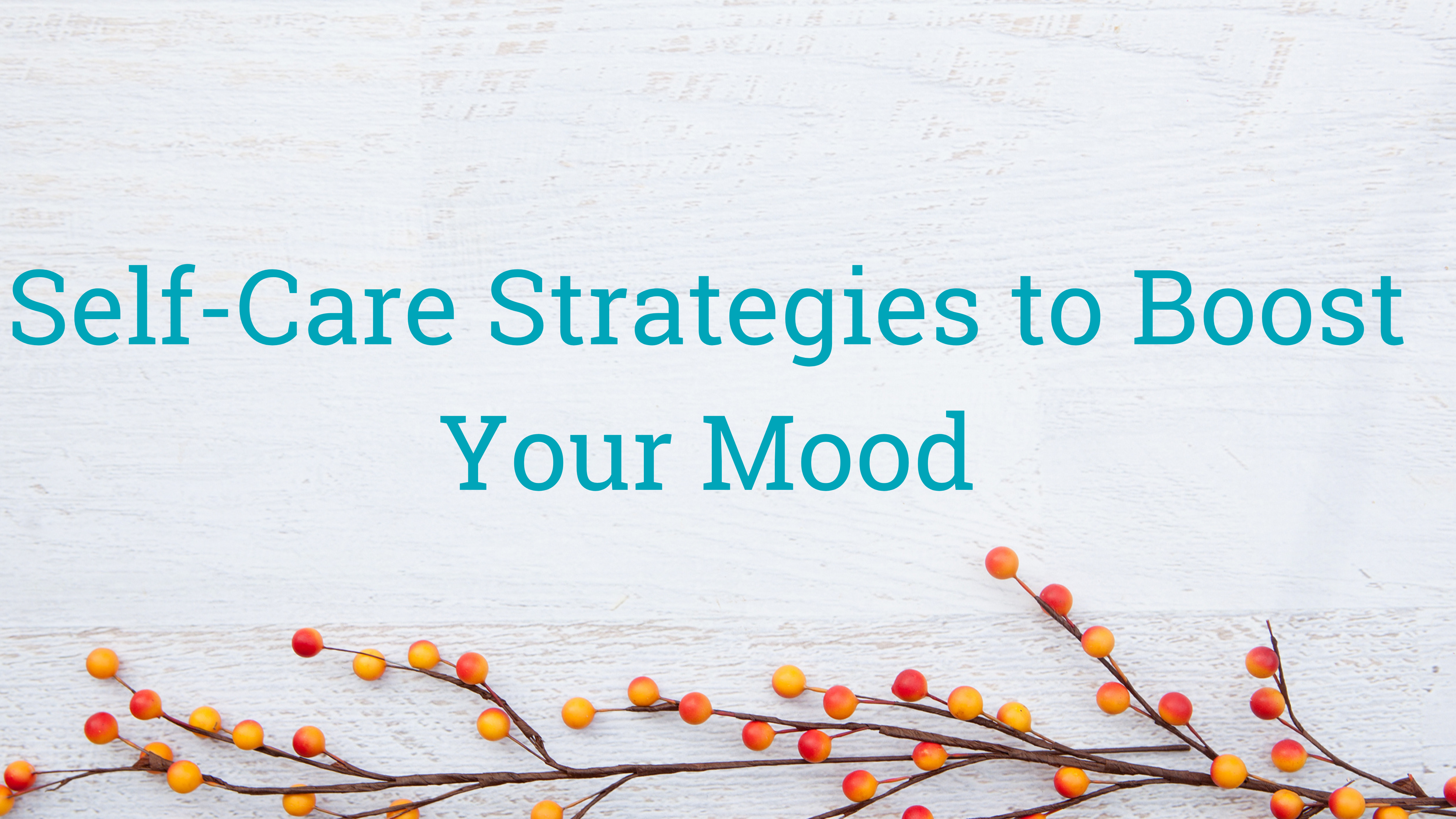
10 Self-Care Ideas to Try If You’re Feeling Sad This Thanksgiving
Holidays can be a time of joy and togetherness, but sometimes holidays can be stressful or even sad. Spending the holiday alone may be the result of conflicting schedules, familial issues, or the financial strain of traveling. This year, however, the COVID-19 pandemic has halted Thanksgiving plans across the globe. Regardless of what’s having you feel a little blue this Thanksgiving, it’s important to focus on the things you are grateful for — and that includes yourself too! Taking time to practice self-care during the holidays can help make your day a little easier.
1. Make Time for Your Favorite Things
Thanksgiving is just one day, but between all the cleaning, cooking, prepping snacks, decorating, it can consume your weekly agenda. This Thanksgiving, allow time for some of your favorite activities. Even it’s just 30 minutes of knitting, working on a new art project, or reading your favorite book — your favorite things can help you feel good. You can also schedule in fun quarantine-safe activities so your household can join in on the fun too. Check out this list of 17 Thanksgiving Day ideas here.
2. Reframe Your Mindset
If you’re missing out on Thanksgiving with your family — because of travel restrictions or work obligations — try to reframe your mindset. Instead of viewing the day as a missed opportunity, try to see your day as a solo staycation, or even as a day of rest and relaxation.
Bottom line: try to look at the day as one of a gained opportunity (for some well-deserved R&R) rather than a loss.
3. Treat Yourself to Your Favorite Foods
You can even reframe what “Thanksgiving Dinner” looks like. You don’t have to recreate your Grandma’s famous roasted turkey if you don’t want. You might prefer spaghetti and meatballs or French toast and bacon — whatever makes your staycation feel complete.
Even if you indulge in a slice of pumpkin pie, don’t skip your veggies! Eating nutrient-dense meals helps to support your mental health. Salmon, chia seeds, walnuts, and avocados are good for your brain too!
4. Stay Active
Exercise is a well-known mood lifter. Here are some ideas to fit a little physical activity into your Thanksgiving schedule:
- Take a walk around the block. Not only does this provide fresh scenery, but you also benefit from the sunshine and fresh air.
- Turn on a dance workout on YouTube and dance your way to a better mood.
- Play fetch with your dog in the yard.
5. Volunteer Your Time
Did you know that volunteering can boost your mood and help fend off the feelings of depression? Studies show that volunteering is a powerful anti-depressant, and even with restrictions this year, you can find ways to volunteer. You might:
- Make cards for a nursing home
- Offer to walk dogs at an animal shelter
- Participate in virtual volunteer opportunities
6. Find Something That Makes You Laugh
Whether you giggle to yourself or let a big guffaw, laughing can be good medicine. According to the experts at Mayo Clinic, laughter can:
- Reduce stress levels
- Stimulate your heart, lungs, and muscles
- Increases endorphin levels in your brain
- Relax you
- Ease tension in your body
That’s not all, though. Laughter can also boost your immune system, improve your mood, and increase your sense of personal satisfaction. Not too shabby! Treat yourself to a funny movie, sit back, and laugh!
7. Connect with Others

- Facetime or Zoom while you eat dinner. It’s not the same as dining in person, but you can still share in the moment.
- Call a friend or family member and “prep” together. Use your headphones and dice, chop, and bake while engaging in friendly conversation.
- Video conference with your extended family and ask everyone to share one thing they are grateful for this year.
8. Start a Gratitude Journal
Keeping a gratitude journal is a great way to lift your mood. In fact, writing in a gratitude journal is shown to improve emotional resilience and reduce stress. There are many ways to keep a gratitude journal, but here are some tips:
- Journal first thing in the morning to start the day on a positive note
- End the day with a quick reflection about things you were grateful for over the course of the day
- If your child can’t write yet, she or he can draw pictures instead

Does your child want to journal with you? You can download our free printable Gratitude Journal.
Print out the journal and let your child explore the concept of gratitude. With 50+ pages, your child will have nearly two months of journaling!
9. Listen to Music
Studies have shown that listening to music can lift your mood and reduce the feelings of depression. Music can also lower your levels of stress-related hormones (e.g., cortisol). While Time Magazine reports that “calming music” is subjective, the tracks with a slow tempo, gradual chord progressions, and drawn-out notes have the best relaxing effects.
10. Get Help If You Need It
Even with self-care strategies and Zoom calls to feel connected with friends, sometimes it’s not enough to feel better. If you experience the symptoms of depression or anxiety, don’t brush them off. Anxiety and depression can be treated with therapy, medication, and lifestyle changes. With the right support and strategies, you can feel better.
Here at Next Step 2 Mental Health, we provide comprehensive mental health care for children (and adults too!). Whether you are just experiencing depression/anxiety for the first time this year, or you’ve been struggling a while, we can help. Call 502-339-2442 or send us a message to request more information.
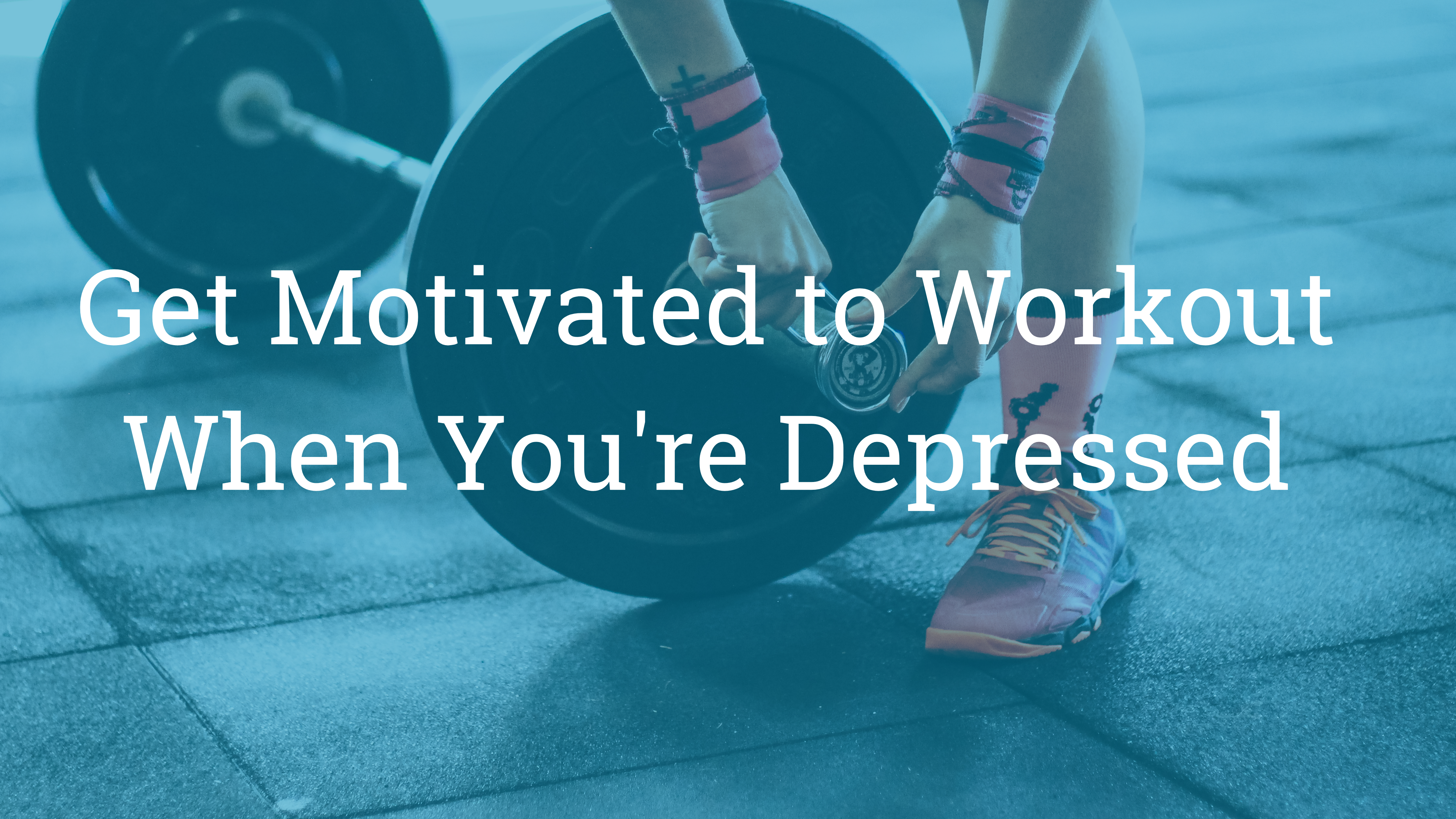
How to Get Yourself to Work Out When You’re Depressed
Whether you’re dealing with seasonal affective disorder, major depressive disorder, postpartum depression, or bipolar depression… it can be hard to motivate yourself to work out.
Yet…exercise is one of the best things you can do to support your health — and that includes your mental health too! But just knowing that exercise is good for you isn’t always enough to get the sneakers on, especially if you’re unmotivated. The truth is that no one is always excited about exercise 100% of the time —and that’s okay—but there are steps you can take if you find it hard to complete everyday tasks.
Depression can grow to be an all-encompassing condition that makes even daily tasks difficult. Depression can lead to indecision, which makes it hard to decide when to exercise or what type of exercise you want to try. Monica Clark, LPA, shares:
“Many people with depression will struggle to make [decisions]. For more complex decisions… a person with depression may feel paralyzed by an inability to decide. Difficulty making decisions may be related to either internal or external fears.”
If you or a loved one are battling depression—or even suspect you might be— our compassionate team here at Next Step 2 Mental Health encourages you to reach out for help. Professional mental healthcare providers can help you learn strategies to make a positive difference in your life, despite the all-consuming nature of depression.
In the meantime, keep reading to explore six strategies to boost your motivation.
Don’t Wait for Motivation
Depression can make even the smallest tasks, like showering, seem daunting. When it comes to exercise, don’t wait for a burst of motivation. Try reversing your thought process. Instead of saying, “I’ll go for a walk when I feel better” try thinking “I’ll go for a walk to help me feel better.” Over time, this will get easier.
You can also post a sticky note on your mirror or next to the couch to remind you to take your daily walk.
Eliminate Every Barrier Possible
If the idea of exercising seems impossible, chances are good that laying out workout clothes isn’t any easier.
In the absence of motivation, there are few things you can do to make this process easier:
- Keep your sneakers by the door and ready to go
- Plan a specific time for your daily walk
- Invite a friend or family member to join you (accountability)
- Go to bed in your workout clothes (so you’re ready first thing in the morning)
Start Small

Exercise doesn’t have to intense marathon training. Your body and your mind benefit from all kinds of physical activity. Even just the simple act of standing up and walking around the house for 10 minutes is a good place to start. Maybe just a walk with your dog around the block. Once you get up and moving, your endorphins start to pump, and you might find yourself wanting to do more. If not, and those laps around the house are all you do in a day, that’s still much better than nothing.
Walking can be very therapeutic. According to a study published in the Primary Care Companion to the Journal of Clinical Psychiatry, walking for 30 minutes per day for 10 days was enough for the study participants to notice a shift in their mood. You don’t have to walk on a treadmill though. You can walk outdoors and get the added benefit of sunshine — which can also boost your mood.
“Any physical activity is better than none,” certified health coach Pam Valdes reminds us.
Join an Exercise Program
According to researchers, individuals with depression who joined an aerobic exercise program experienced:
- Reduced feelings of anxiety
- Reduced depression symptoms
- Improved self-esteem
You can find a variety of aerobic exercise programs both in-person and online.
Recognize Negative Self-Talk
Sometimes negative self-talk can block your desire to work out, and unfortunately, negative self-talk is common among those with depression. However, if you learn to recognize negative thoughts and replace with neutral or positive thoughts to help you take your next step.
Here’s an example of what that might sound like:
- Negative self-talk: “I’m not good at lifting weights, so I won’t even try.”
- Neutral self-talk: “This is challenging, but that’s okay.”
- Positive self-talk: “I am strong, and each day, I continue to strengthen my muscles. I can do this.”
You can learn more about self-talk and depression in “Overcoming the Negative Self-Talk Cycles of Depression.”
Recognize Your Accomplishments
When you’re feeling depressed, any physical activity is a major win. Celebrate all of your accomplishments — big or small.
You might consider keeping a calendar and marking each day you exercise. Maybe you use a check mark, a gold star sticker, or the simple phrase, “I exercised today.” When you look back and see all of the days that did work out, it can boost positive feelings about yourself — and that can be a good motivator to keep it up.
You can also share your accomplishments with friends, family members, or any accountability/workout buddies.
When Depression Prevent Exercise: Find Treatment That Works
At Next Step, we know how profoundly depression can impact all aspects of your life. Our compassionate, non-judgmental team offers a variety of depression treatments, including medication and therapy.
If depression is keeping you from your potential, we can help. Call our Louisville, Kentucky office at 502-339-2442. You can also request an appointment online.
Learn More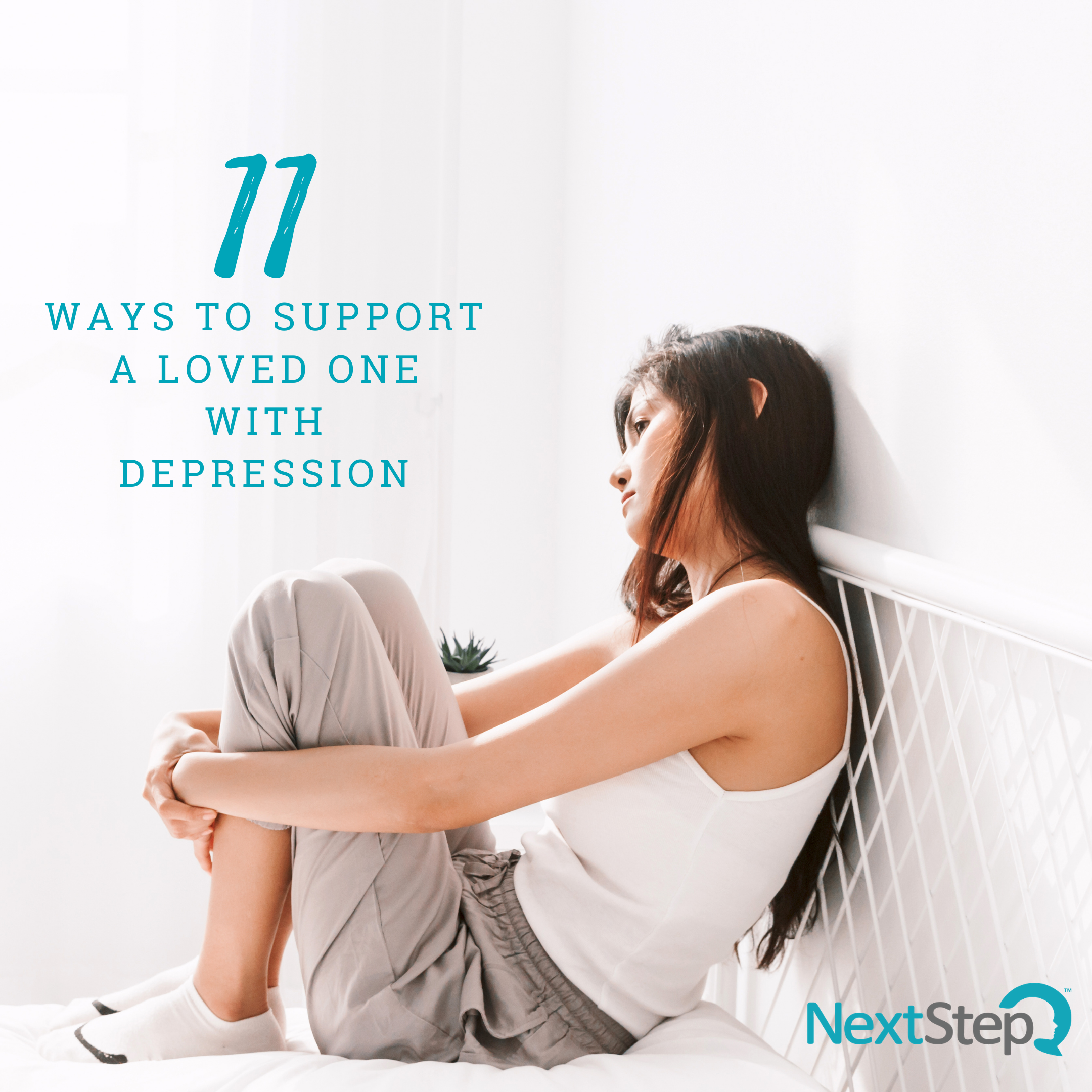
11 Ways to Help Someone with Depression
If a family member or loved one has depression, you might wonder what you can do to help them feel better. You might even feel confused or worried for your loved one.
At Next Step 2 Mental Health, our team of caring providers wants you to know that depression is treatable. In this article, we’ll explore 11 ways you can help someone in your family with depression.
11 Ideas to Help a Loved One with Depression
It can be overwhelming to see a loved one struggle with the symptoms of depression, but here are 11 ways you can help.
1. Practice Self-Care … and Take Care of YOU

You’ve probably heard the phrase: “You can’t pour from an empty cup.” Before you can help your loved one, you have to take care of yourself too. That means your physical and mental health. If you’re burnt out, it can be hard to care for another person. Taking a step back to recharge yourself can give you the energy you need to care for a loved one.
Self-care ideas include:
- Eating nourishing meals
- Exercising regularly (read this article to find out how nature improves your mental health)
- Getting quality sleep (aim for at least 7-9 hours of sleep each night)
- Allotting time for your own favorite hobbies
- Reading a relaxing book
You can also encourage self-care habits for your entire family.
2. Acknowledge Your Own Feelings
Depression doesn’t just impact your loved one. It can affect your entire family. Caring for a spouse or teen with depression can be overwhelming. Don’t ignore your feelings. They are normal and valid. You can’t control what you feel, but do know that your feelings are a natural response to what can be a potentially overwhelming or difficult situation.
You may find it valuable to join a caretaker/family support group, talk with with your spouse (which is especially important if you are both caring for a child or teen with depression), or even see a therapist yourself. The important thing is to be open about your frustrations rather than keep them pent up inside.
3. Learn as Much as You Can About Depression
Depression is well-known for causing intense sadness, but that’s not the only symptom. Depression can affect people differently. Take the time to read about seasonal affective disorder, how depression physically affects the human body, and explore the lesser-known symptoms of depression.
You might notice any of the following in your loved one:
- Weight changes (either losing or gaining weight)
- Loss of interest in favorite hobbies
- Changes in eating habits (including eating more and eating less)
- Sleep disturbances and insomnia
- Sleeping too much or not enough
- Feeling guilty
- Feeling worthless
It’s also important to note that depression causes physical symptoms too. Your partner or teen might complain of headaches, muscle tension, and stomach pain.
Monica Clark, LPA elaborates: “Depression is not just in your head.” She continues to share that depression can cause real, tangible pain. Depression can alter the way your loved one experiences pain. It can decrease his/her pain tolerance.
4. Research Disability Laws and Rights
If your loved one can’t work due to depression, you might want to learn more about any pertinent disability laws. The American Disability Act (ADA) defines a disability as a physical or mental impairment that substantially limits a major life activity. Under this law, individuals have the right to privacy as well as the right to ask for reasonable accommodations.
5. Be Supportive

One of the most helpful things you can do is to let your loved one that you are there for them. Support – in the form of a listening ear or a shoulder to cry on – can be comforting
Be patient, but let your loved one know you are there for them in whatever way they need.
Depression is not their fault and it doesn’t make someone lazy, worthless, or weak. Don’t be afraid to ask how you can best help out. You’ll never know what a simple offer to help can do until you try.
6. Don’t Take Withdrawal Personally
People with depression may withdrawal or avoid social outings or events. Try not to take withdrawal personally. Withdrawal can be hurtful, especially if it’s your spouse that pulls away. Recall from your research on depression that loss of libido can be a sign of depression – and not a sign that something is wrong with you.
Withdrawal (or even an angry outburst) may have nothing to do with you.
7. Resist Nagging
Depression can cause fatigue and loss of interest in normal everyday routines. On the outside, it might look as if your loved one is lazy – especially if they stop helping out around the house. However, a person with depression isn’t lazy. They are struggling with a mental illness.
Try to remember that everyday activities – such as paying a bill or even feeding a beloved pet – can be very overwhelming for someone with depression.
Try not to blame your loved one – or yourself. There’s no shame in asking for help.
8. Learn about Depression Treatments
Although depression can be incapacitating, it can be treated with therapy, lifestyle changes, and medication. One easy way to help your loved one is learn about potential treatment options, including how depression medication works.
You might want to learn:
- How depression medication works
- What are the potential side effects
- How to tell if a treatment is no longer working
- How to tell if your teen has stopped taking medication (withdrawal symptoms)
If you’re helping your teenager manage his or her depression, you might set up online therapy appointments, encourage healthy lifestyle changes, and make sure they take their medication as described – and reassure them that medication isn’t a sign of weakness.
9. Offer Hope to Your Loved One

“Once you choose hope, anything is possible.” Christopher Reeve
Offering hope to a loved one can give them the courage to get dressed each morning. Hope comes in many forms. It might faith in God, the thought of their children, or even a pet – or anything that gets your spouse or teen out of bed each morning.
Tip: Know what matters to your spouse or teen (like children or a pet) and find ways to remind him or her of these sources of hope when they are struggling on a bad day.
10. Know When You Need Immediate Help
If your family member is showing signs of suicidal thoughts or is self-harming, he or she needs immediate help.
Out of an abundance of caution and for the sake of safety, familiar yourself with these red flags:
- Preoccupation with death
- Signs of self-harm
- Creating a will and/or giving away possessions
- Talking openly about suicide
- Saying goodbye as though it’s the last time
- Statements like, “You’d be better off without me” or “Maybe I should just go away”
- Suddenly switching from being very depressed to being very happy without reason
If you are feeling suicidal, thinking about hurting yourself, or are concerned that someone you know may be in danger of hurting himself or herself, call the National Suicide Prevention Lifeline at 1-800-273-TALK (1-800-273-8255). It is available 24 hours a day, 7 days a week and is staffed by certified crisis response professionals.
11. Love Them Unconditionally
Feelings of guilt or worthlessness often accompany depression. These feelings may cause a person with depression to feel like a burden. To mitigate these feelings, let your loved one know that your love is unconditional.
Explore Your Next Steps
Regardless of what type of mental health concerns you have, our team of skilled and compassionate providers can help you and your family regain control of your life. At Next Step 2 Mental Health, it’s our mission to help you live a happier life, a better life.
Give us a call at our Louisville, Kentucky office at 502-339-2442, or send us a message to request more information.
You can also request an appointment with our convenient scheduling tool here.
Learn More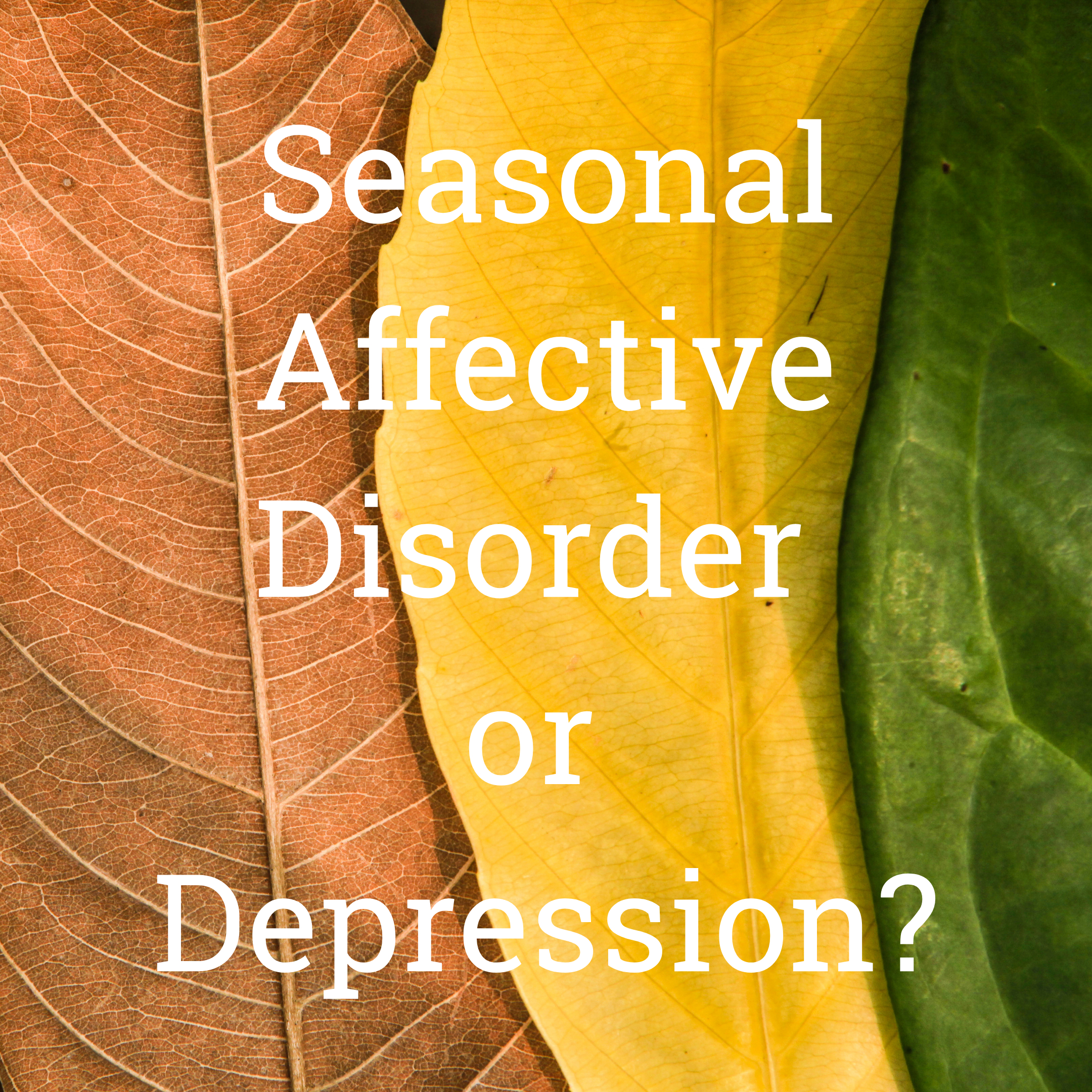
Do You Have Depression or Seasonal Affective Disorder?
Winter blues. Winter funk. The Blues. Whichever name you use, the reality is that seasonal affective disorder (SAD) is common during the darker winter months, and it can be debilitating.
If you’re experiencing any symptoms of depression or SAD, we encourage you to give us a call. Whether you’re struggling with major depressive disorder or seasonal affective disorder, we can help you feel better.
In the meantime, continue reading this article to explore what SAD is and how it’s different from major depressive disorder.
What Is Seasonal Affective Disorder?
According to the Diagnostic and Statistical Manual of Mental Disorders (DSM-IV), seasonal affective disorder is described as a “specifier,” referring to the seasonal pattern of major depressive episodes. Depressive episodes can occur within major depressive disorder as well as bipolar disorders.
According to the American Family Physician, SAD is a pattern of major depressive episodes that come and go with changes to the seasons. The most common form of SAD is known as the winter blues or winter depression, with symptoms starting in the fall and continuing until spring.
Symptoms of a major depressive episode (whether you have SAD, major depressive disorder, or bipolar disorder) include:
- Increased feelings of sadness
- Feeling depressed almost every day
- Loss of passion for your favorite activities
- Fatigue and low energy levels
- Difficulty sleeping
- Changes to your appetite
- Feeling agitated
- Trouble concentrating
- Experiencing feelings of hopelessness or guilt
- Having frequent thoughts of death or suicide
If you are feeling suicidal, thinking about hurting yourself, or are concerned that someone you know may be in danger of hurting himself or herself, call the National Suicide Prevention Lifeline at 1-800-273-TALK (1-800-273-8255). It is available 24 hours a day, 7 days a week and is staffed by certified crisis response professionals.
SAD or Depression?

How can you tell if your feelings of depression are related to SAD or major depressive disorder? The biggest indication is the connection to seasonal changes. According to the DSM, the following characteristic help to identify the seasonality of your depression:
- There is a recurrent link between the onset of the major depressive episodes and a certain time of year
- There is a full remission (or at least a shift from major depression to hypomania) that occurs at a certain time of year
- Two episodes have occurred in the last two years
- Major depressive episodes linked to seasonal change outnumber the episodes of non-seasonal episodes
Tips for Decreasing the Impact of SAD
Now that we’ve covered what SAD is, how to spot the signs of SAD, and how light affects your mood, what can you do about it?
Here are four strategies you can implement.
1. Schedule Regular Exercise

Staying active is good for your body and your mind. Exercise can boost your mood — thanks to those feel-good endorphins. Endorphins help reduce stress, decrease feelings of depression or anxiety, and even help you sleep better at night.
Even as the seasons change, try to find ways to fit 30 minutes of daily exercise into your routine. As the Norwegian say, “There’s no such thing as bad weather, only bad clothes.” Bundle up and experience cold-weather activities like cross-country skiing, hiking, or snowshoeing. Even an extra walk around the block in the fresh air is good for you.
You don’t have to exercise outside to reap these benefits. There are plenty of indoor options: running on a treadmill, cycling on a stationary bike, yoga or Pilates, lifting weights, or following along with a YouTube at-home workout.
2. Soak Up Some Sunshine
Even if the sun is setting early and early, try to spend time outside each day. Experts suggest spending 30 minutes of your time in the morning sun — to start the day off right. If you walk your dog or go for a quick jog in the early morning sun, then you’ve crossed two items off your list in one swoop: regular exercise and soaking up some sunshine.
3. Practice Good Sleep Hygiene
Sleep disturbances are a common symptom of depressive episodes. You can help to reduce the intensity of sleep disturbances by following good sleep hygiene.
This includes:
- Going to bed at the same time every night
- Avoiding blue lights before bed
- Sleeping in a cool, dark room (just a few degrees cooler than room temperature)
- Using a white noise machine
- Engaging in a relaxing activity before bed (like reading or listening to calming music)
- Exercising during the day (but not within the hours right before bed)
Want more sleep tips? You can learn more about sleep hygiene here: What Is Sleep Hygiene?
4. Seek Treatment
Whether you’re dealing with SAD or major depressive disorder or bipolar disorder, depression can be debilitating — even if it doesn’t last year-round. Our compassionate and non-judgmental team of experts is here to help you get the relief you need.
Call our Louisville, Kentucky office at 502-339-2442. You can also request an appointment online.
Learn More
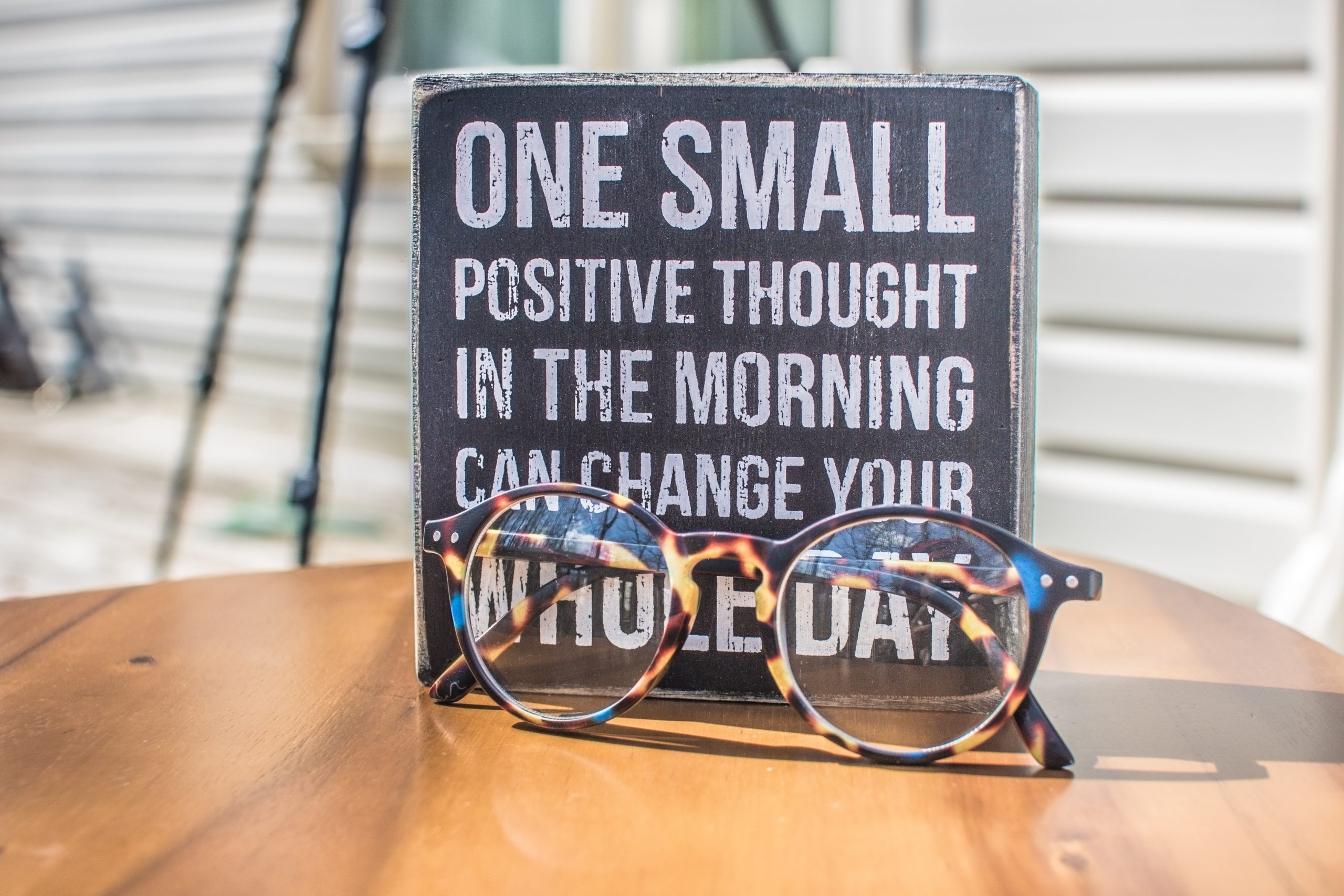
Overcoming the Negative Self-Talk Cycles of Depression
How you talk to others is important and can play a big role in the quality of your relationships. However, how you talk to yourself is equally important. Your state-of-mind and your internal monologue (self-talk) impacts your mental health. The American Psychological Association can assess the quality of self-talk to predict anxiety in kids. Self-talk doesn’t just impact anxiety; it can exacerbate depression too. According to a study published in the Annual Review of Clinical Psychology, people who engage in negative self-talk experience more intense feelings of depression.
Here at Next Step 2 Mental Health, we want to help you overcome both the physical and mental challenges of living with depression. Our multidisciplinary team is experienced when it comes to diagnosing and treating depression — and that includes helping you overcome negative self-talk.
In the meantime, read through this article to learn how to identify common negative self-beliefs and how you can reframe your mindset.
Depression and Negative Self-Talk: What’s the Link?
Sadness is one of the most well-known symptoms of depression. While intense sadness can be debilitating, it’s not the only symptom of depression. Other symptoms of depression include changes to your eating habits (eating more or less), changes to your sleeping routines (sleeping more or less), irritability, fatigue, and physical aches.
Teens and adults with depression might also cling to negative self-beliefs. Self-beliefs are thoughts and perceptions about yourself, and they can be positive or negative.
Negative self-beliefs are faulty, self-defeating thoughts that you hold about yourself and/or the world around you.”
Negative self-beliefs cause low self-esteem. Holding so many negative views about yourself and your abilities can impact your life in many ways.
Negative self-talk might:
- Make it hard for you to think you’ll reach your goals
- Lead you into the faulty thinking patterns that if you can’t be perfect, then it’s just not worth it to try
- Impact your relationships with friends, co-workers, and family members
So what can you do about negative self-talk? The first step in overcoming negative core beliefs is to learn to identify the negative self-talk and then work towards minimizing those thought patterns.
Identifying Negative Self-Talk and Negative Core Beliefs
Negative core beliefs are the faulty things you believe about yourself, and negative self-talk is the way you talk to yourself — that inner dialogue with yourself.
Negative self-talk can sound different to each person, but here are 10 examples.
- “I’m unlovable.”
- “I can’t do anything right.”
- “I’ll never be good enough at A or B.”
- “I’m not enough.”
- “I’ll never be a good enough spouse.”
- “I’m a failure.”
- “I’m not a good enough parent/brother/sister/friend.”
- “I’m too weak.”
- “I’m too lazy.”
- “I’ll never succeed at work.”
Once you can pinpoint a thought as limiting or negative, you can start to replace negative thoughts with neutral thoughts.
Replacing Negative Thoughts
First, remember that your thoughts don’t necessarily reflect the truth. For instance, just because you think you’ll never be a good enough runner doesn’t mean that you have to stop going for a daily jog.
Negative self-talk wants you to think “I’m too weak, and I’ll never be able to run a 5K.” However, if you focus on neutral thoughts — rather than the negative — you might see a clear path forward.
What does a neutral thought sound like?
Consider this phrase: “Preparing for this race is challenging. I understand now how more cross-training sessions can help me become a better runner.”
Here’s the difference: Negative self-talk limits your ability to believe in yourself to reach your goals. Neutral self-talk can help you see your potential without limiting you. Positive self-talk can take it one step further.
Consider this phrase: “My body is strong. With every training day, my muscles become stronger and stronger. I can follow the training program, and I can complete my race.”
Positive Self-Talk

Multiple studies have shown that positive thinking and positive self-talk can have a real impact on your mental and physical health. For instance, athletes often use positive self-talk to boost performance or even push through more challenging workouts.
Examples of positive self-talk include:
- “I can do this.”
- “I am good enough.”
- “My body knows what to do.”
- “If I try hard, I can get there.”
More Options to Stop Negative Self-Talk
In addition to focusing on neutral and positive self-talk, keep these tips in mind:
- Say your self-beliefs out loud. It might feel silly at first, but it’s actually a lot easier to spot the negative self-talk by saying your thoughts out loud.
- Ask yourself what a friend would say to you. Try to think like your friend. Or, alternatively, what would you say to a friend in your position?
- Insert as much positive self-talk into your day as possible. You can even stick sticky notes on your mirror to start your day on a more positive note.
Remember: Share a little TLC with yourself. Loving yourself starts with how you think about yourself.
Depression Treatment When You Need It Most
At Next Step, we know how profoundly depression can impact all aspects of your life. We also know that it can be hard to free yourself from a cycle of negative self-talk. The good news is you don’t have to go on this journey alone. Our compassionate, non-judgmental team offers a variety of depression treatments, including medication and therapy.
If depression is keeping you from your potential, we can help. Call our Louisville, Kentucky office at 502-339-2442. You can also request an appointment online.
Learn More